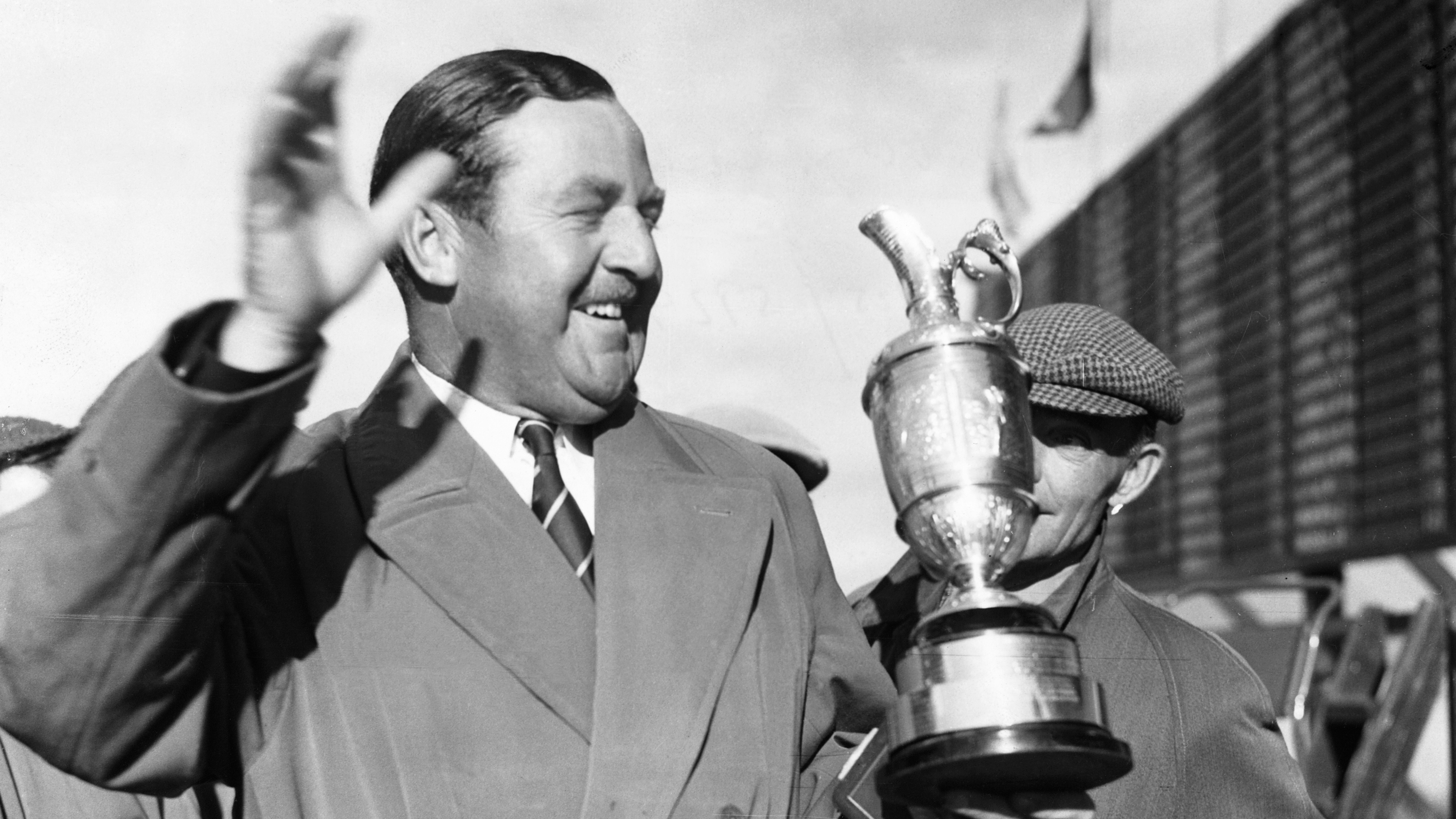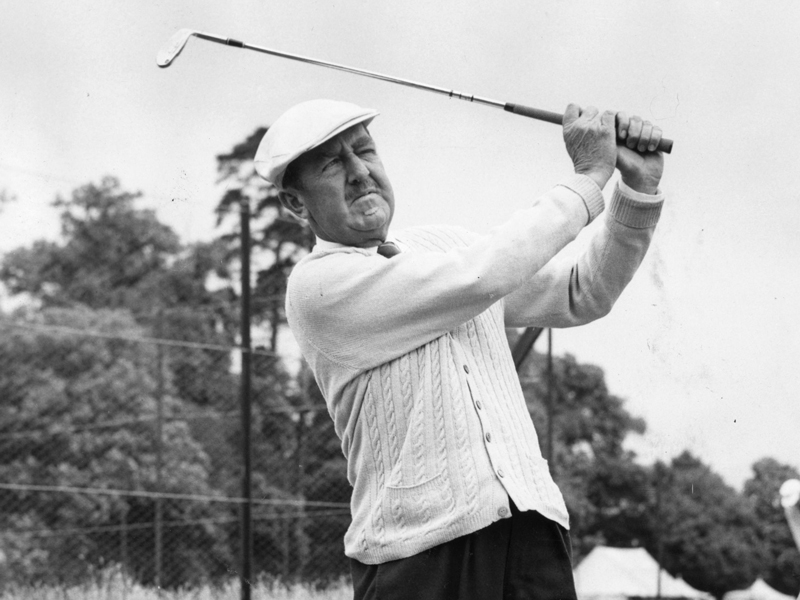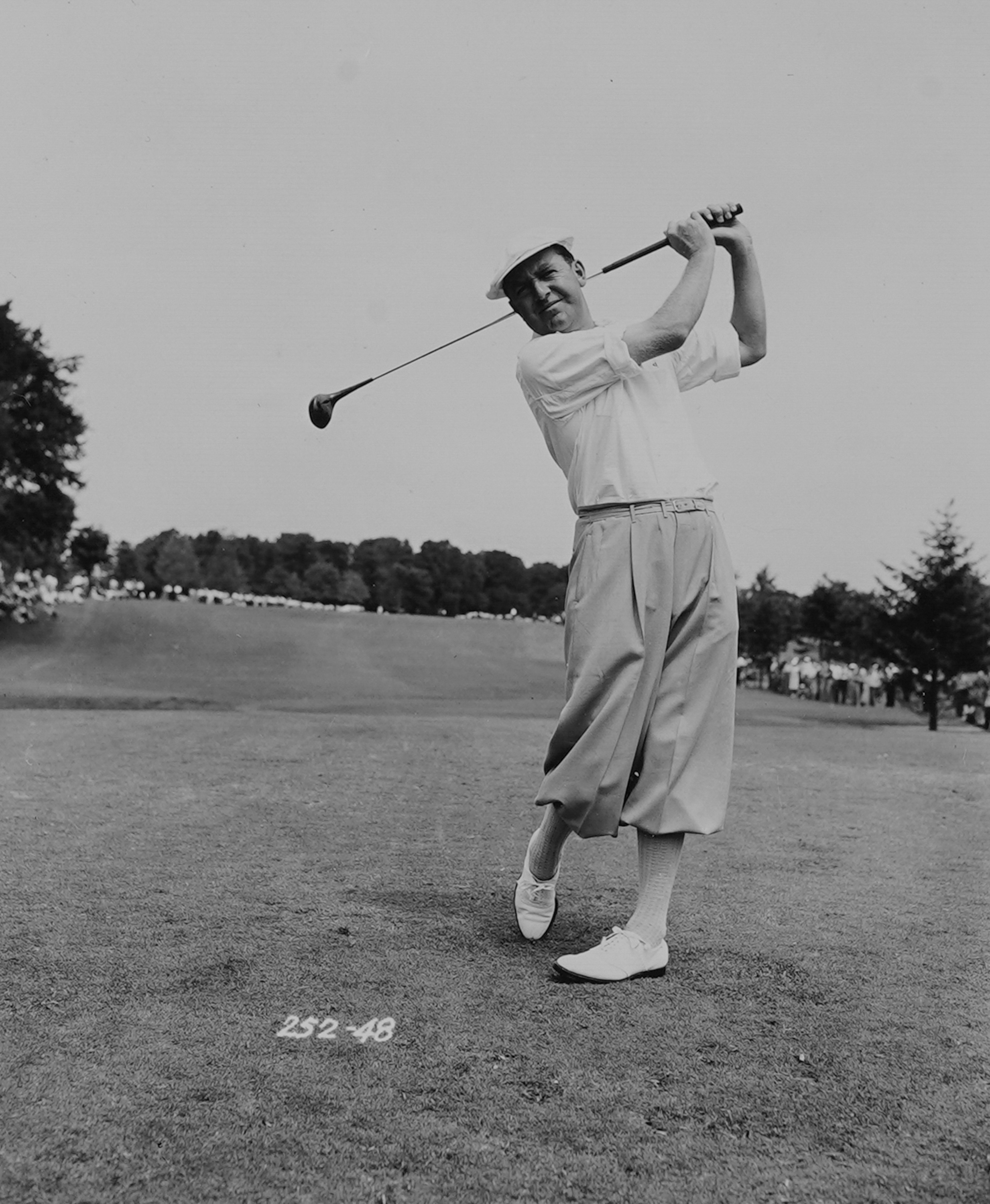Bobby Locke: From Triumph To Tragedy
Bobby Locke - The triumphant but ultimately tragic tale of a South African golfing legend


Subscribe to the Golf Monthly newsletter to stay up to date with all the latest tour news, equipment news, reviews, head-to-heads and buyer’s guides from our team of experienced experts.
You are now subscribed
Your newsletter sign-up was successful
Want to add more newsletters?

Delivered daily
Daily Newsletter
Sign up for all the latest tour news, gear reviews, head-to-heads and buyer’s guides plus features, tips from our top 50 coaches and rules advice from our expert team.

Once a week
Kick Point
Sign up to our free Kick Point newsletter, filled with the latest gear reviews and expert advice as well as the best deals we spot each week.

Once a week
Women's Golf Edit
Sign up to our free newsletter, filled with news, features, tips and best buys surrounding the world of women’s golf. If you’re a female golfer, you won’t want to miss out!
Bobby Locke’s legacy is remarkable, triumphant and tragic. He was a four-time Open Champion and winner of 72 professional tournaments, but a car accident in 1960 damaged him physically and mentally and had an ultimately devastating affect on his wife and daughter.
Arthur D’Arcy Locke was born in Germiston, South Africa in November 1917. At a young age he showed considerable golfing talent and was given the moniker “Bobby” because of his admiration for Bobby Jones. At the age of just 14 he won the 1931 South African Boys Championship and, three years later he claimed both the South African Open and Amateur Championships – a double he repeated in 1937. He enjoyed immediate success upon turning pro the following year, winning the Irish, New Zealand and South African Opens of 1938.
World War II interrupted Locke’s burgeoning career and he joined the South African Air Force as a bomber pilot, serving in the Mediterranean and the Western Desert.
Related: Harry Vardon: Golf's first superstar
At the end of the war Locke returned to golf, playing a series of matches in the USA against Sam Snead. After losing 12 of their 14 contests, Snead was so impressed by the South African he encouraged Locke to try his hand on the PGA Tour. Locke accepted and enjoyed considerable success. Much to the chagrin of the PGA Tour regulars, he won 11 tournaments from 59 starts in less than three years.
In 1949 Locke travelled to Royal St George's in Kent where he won the first of his four Open Championships. Later that year the PGA of America barred Locke from the PGA Tour. Ostensibly this was because Locke had reneged on commitments to tournaments in the States immediately after his Open triumph, but general consensus is the disaffected US Tour players had a say in the matter.
The ban was lifted but Locke never again felt welcome in the States and, from then on, played most of his golf in Europe. He defended his Open crown in 1950 and won twice more, in 1952 and 1957.
Subscribe to the Golf Monthly newsletter to stay up to date with all the latest tour news, equipment news, reviews, head-to-heads and buyer’s guides from our team of experienced experts.
A Famously Brilliant Putter

Locke played with a wristy inside to out swing producing a consistent draw (some said hook) that repeated unerringly. He was a deliberate golfer and his slow play irked numerous opponents. But, Locke was never penalised and he developed a reputation for being unshakeable on the course. The yanks gave him the unkind nickname “Muffin Face” for his unchanging expression.
It was on the greens the South African truly excelled. He used an old rusty putter with a hickory shaft and employed an unorthodox technique, echoing his wider approach to life. He was an extrovert who sported baggy plus fours with shirt and tie on course. He liked singing music-hall numbers and played the ukulele.
In 1960 Locke was playing an exhibition match near Cape Town when his wife Mary gave birth to a girl – Carolyn. Rushing back to Johannesburg, Locke’s car was hit by a train on a level crossing. He was left unconscious for two days, lying in the same hospital as his wife and new daughter.
The accident ended Locke’s days as a competitive golfing force as he suffered regular migraines and problems with his sight. His behaviour over the following years became unusual and he disappeared from the public eye. In 1979, he received a suspended prison sentence after wounding a man with a 12-guage shotgun over a disputed bill.
Locke died of meningitis in 1987, leaving his widow broken-hearted in a decaying Johannesburg apartment block he’d purchased back in 1949. After a failed marriage, Carolyn moved in with her mother five years later and the pair became increasingly reclusive while facing mounting financial problems. In September 2000, Mary and Carolyn drank champagne laced with poison and were found dead some days later, hand in hand in beds pulled together. Mary was buried beside Bobby and Carolyn’s ashes were scattered over her parents' graves.
ESSENTIALS

Bobby Locke swinging
Date of birth: November 20, 1917
Died: March 9, 1987
Place of birth: Germiston, South Africa
Career highlights: - 1935 South African Open winner as a 17-year-old amateur - 11 tournament wins on the PGA Tour between 1947 and 1949 - Open Champion of 1949, 1950, 1952 and 1957 - Nine-time winner of the South African Open Championship, including five in a row between 1937 and 1946 - 1977 Inducted into the World Golf Hall of Fame
Quote: “One six-foot putt, for my life? I'll take Bobby Locke. I've seen them all, and there was never a putter like him.” Gary Player

Fergus is Golf Monthly's resident expert on the history of the game and has written extensively on that subject. He has also worked with Golf Monthly to produce a podcast series. Called 18 Majors: The Golf History Show it offers new and in-depth perspectives on some of the most important moments in golf's long history. You can find all the details about it here.
He is a golf obsessive and 1-handicapper. Growing up in the North East of Scotland, golf runs through his veins and his passion for the sport was bolstered during his time at St Andrews university studying history. He went on to earn a post graduate diploma from the London School of Journalism. Fergus has worked for Golf Monthly since 2004 and has written two books on the game; "Great Golf Debates" together with Jezz Ellwood of Golf Monthly and the history section of "The Ultimate Golf Book" together with Neil Tappin , also of Golf Monthly.
Fergus once shanked a ball from just over Granny Clark's Wynd on the 18th of the Old Course that struck the St Andrews Golf Club and rebounded into the Valley of Sin, from where he saved par. Who says there's no golfing god?